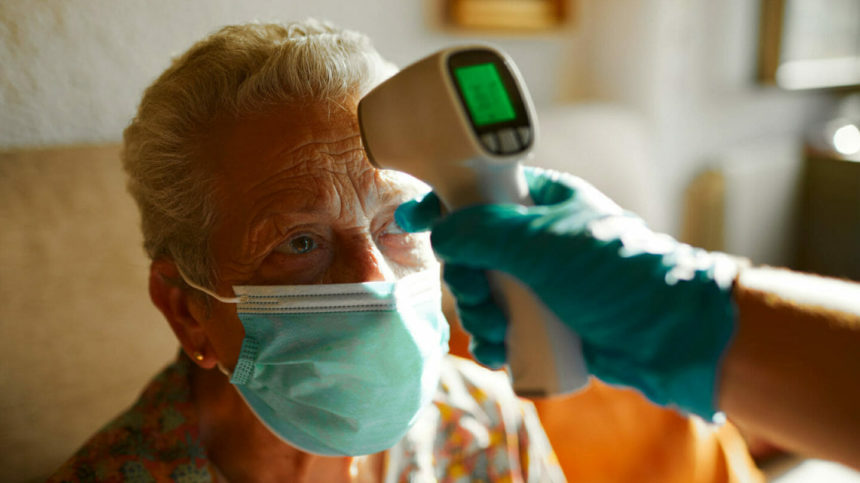
A leading industry advocate is calling on the Department of Health and Human Services to extend the pandemic public health emergency (PHE) beyond Oct. 13 to help long-term care facilities remain fully equipped for potential infection surges. It is also asking that COVID-19 guidance remain in step with the changing nature of the SARS-CoV-2 virus and the needs of residents and staff.

Safety and quality of life in LTC settings are not mutually exclusive, wrote Mark Parkinson, president and CEO of the American Health Care Association/National Center for Assisted Living, in a Tuesday letter to HHS Secretary Xavier Bacerra.
“As we head into the fall, our healthcare settings must have the resources, flexibilities and policies in place to appropriately respond to this virus and deliver high-quality care. Simultaneously, those living and working in long term care deserve to enjoy some normalcy when they’ve earned it and community measures dictate, much like the general public,” he wrote.
With the BA.5 variant posing ongoing infection risks and influenza season on its way, it is important that the healthcare infrastructure is ready to quickly adapt if a variant evolves that evades current protections, he said.
To that end, the organization urged HHS to keep certain PHE flexibilities in place, such as the three-day hospital stay waiver for coverage of a skilled nursing facility stay. It also asked for reinstatement of waiver on training and certification of nurse aides.
Balancing safety and life quality
Meanwhile, Parkinson urged Becerra to encourage HHS agencies to update their COVID-19 protocols for healthcare settings.
The virus has become less of a threat and is better controlled in LTC communities, he noted. Deaths among nursing home residents are now less than 1 per 1,000, in large part due to the significant vaccine uptake. But unlike other healthcare institutions, nursing homes still must follow “extremely stringent” COVID-19 protocols that are impinging on residents’ quality of life and contributing to burnout among an already depleted workforce, he wrote.
“We want to be clear; nursing homes are committed to protecting their residents and staff members from COVID-19. At the same time, seniors and individuals with disabilities in our settings deserve to enjoy a high quality of life in a more home-like environment,” Parkinson wrote.
Likewise, COVID-19 protocols are one of the factors contributing to the ongoing LTC labor crisis, he added.
“Nursing homes are finding it difficult to recruit and retain staff when caregivers can find work in other healthcare settings or businesses that have less stringent COVID protocols,” he wrote.
New protocol asks
The federal health agencies can strike a balance between safety and quality of life, as they did when they relaxed restrictions on visitors, group activities and communal dining in September 2020, Parkinson wrote.
AHCA/NCAL has asked the Centers for Disease Control and Prevention to consider changing its screening, testing, PPE and quarantine guidance to reflect changing pandemic conditions. Recommendations, sent to the agency in July, included a number of changes that would directly impact resident’s daily interactions and staff burden. Among others, these included removing certain visitor screening requirements, and discontinuing a daily temperature check of all residents in favor of following facilities’ change-of-condition processes for evaluating residents.
In addition, the organization suggested reducing testing requirements and the use of PPE and source control in certain situations. It also asked for shorter quarantines for residents and staff to match that of community guidelines, and that flexibilities be allowed when deciding on patient placement.
“Recovery from the wide-reaching trauma of the COVID-19 pandemic is critical for the LTC sector and advancing these recommendations is an important step to support that recovery,” AHCA/NCAL wrote in the recommendations.
Related articles:
AHCA calls for action as 60% of SNFs limit new admissions
AHCA/NCAL, 15 other groups pressure HHS to extend public health emergency
AHCA to support providers that adopt COVID-19 vaccine mandates for staff




